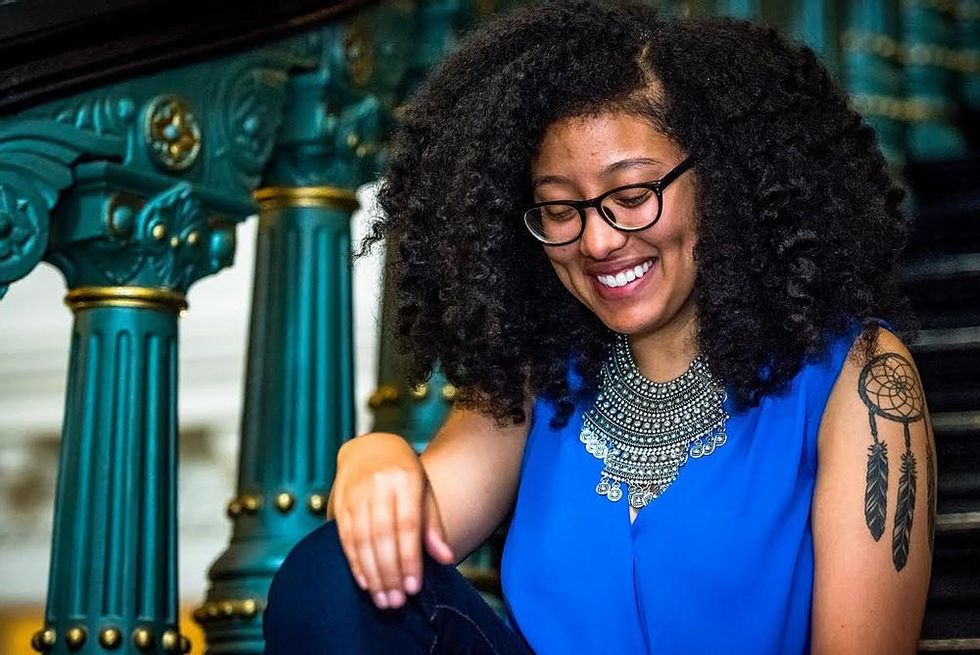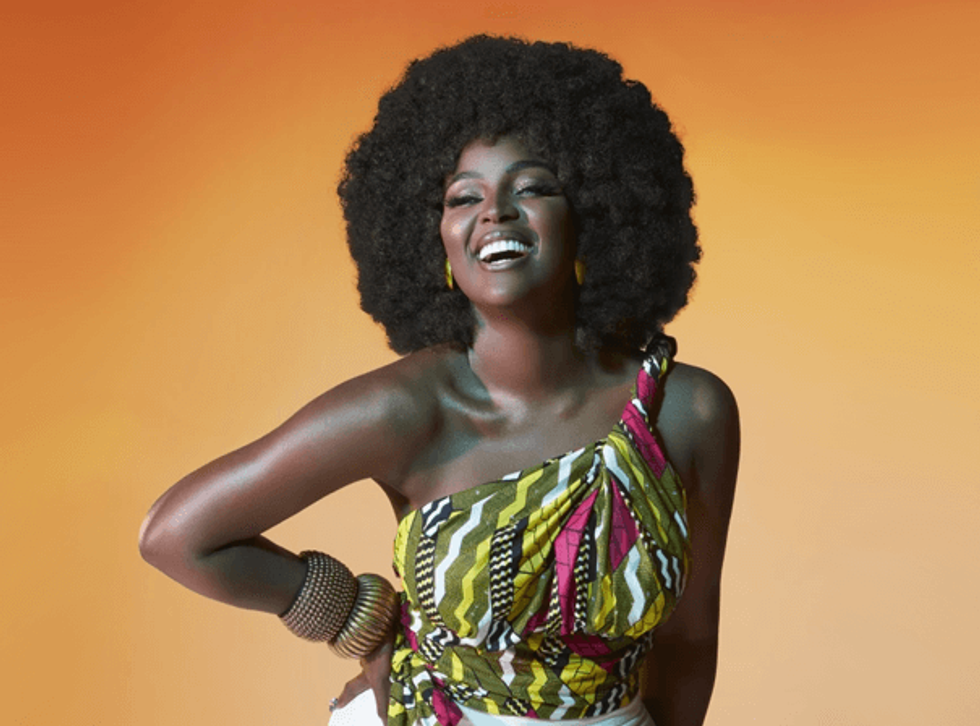The representation of Afro-Latinx people is often non-existent within major media productions. Within American media, the most well-known Latinx faces are often those of light-skinned people, because of the centering of Eurocentric beauty values. This overrepresentation of only light-skinned Latinos effectively erases the existence of Afro-Latinx people from mainstream consciousness. I can't even begin to count the instances where people were surprised to hear me speak Spanish because of the color of my skin. However, this is beginning to change as there's been a huge shift to center the existence of Afro-Latinos as both members of the Hispanic community and as part of the African diaspora. Afro-Latinx femmes are at the forefront of this push for representation.
Though Afro-Latinas have been represented through cultural icons like Celia Cruz, I first became aware of the term "Afro-Latina" through Amara la Negra. Amara is a Dominican-American singer who, despite the pushback from those around her, proudly talks about her African roots. Anti-Blackness within the Dominican community is often hotly debated, but it's origins are usually not as talked about. Anti-Black sentiment within Dominican communities is deeply rooted in the aftermath of colonialism and the violence created by the Trujillo dictatorship. However, this anti-Blackness has begun to dissipate as Black Dominicans are actively subverting Eurocentric values. Amara la Negra pushes against this history of violence by loving and centering her skin and her hair. She is obviously not the first Dominican woman to proudly claim her Blackness, but she's been one of the most well-known ones in recent media history.

Ariana Brown is an African-American and Chicana poet and performer who uses her art to craft her own narrative around her identity and her self-discovery. Her verses often mention the significance of her female family members, and the role they played in maintaining her cultural heritage. Brown often writes about the love she has for Black people like herself and for those around her that affirmed her identity as a Black-Mexican woman. Brown's performance of her poem "For the Black kids in my Eighth Grade Spanish Class" is my favorite. The poem discusses the love she holds for her Black peers as they taught her how to stand concretely and proudly as a Black woman and to "laugh with her whole body" (I love the image that this line creates). Brown's poems not only center love, but the way in which we can decolonize ourselves through love of self and love for our communities.
Afro-Latinx femmes have been and will continue to be leaders in the movement to break down the anti-Blackness that exists in Latinx communities. Art will always be a medium through which Black femmes will push narratives of Black self love and culture. Somos negros y somos latinas, no silenciarán nuestras voces.



















